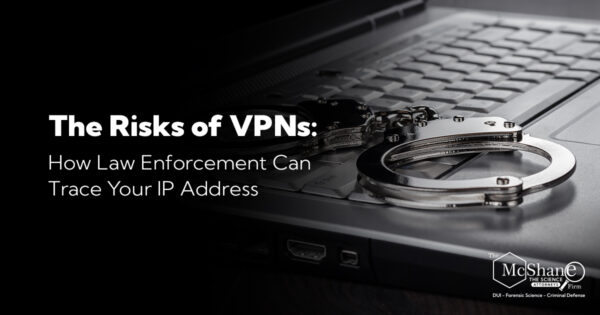When using a virtual private network (VPN), your internet activity is encrypted and your IP address is hidden, making it difficult for anyone to track your online activity. However, law enforcement agencies have developed methods to trace your IP address even when you are using a VPN.
One common method used by law enforcement agencies is called “up address tracing.” This involves monitoring the traffic between the VPN server and the internet and tracing the IP address of the user back to the VPN server. Once the IP address of the VPN server is identified, law enforcement can then obtain a warrant to obtain information from the VPN provider about the user’s activity.

There are a few ways that law enforcement can trace an IP address back to a VPN server. One way is to monitor the traffic between the VPN server and the internet and look for patterns that indicate which traffic is coming from the user. This is good old fashioned traffic analysis used in Bletchley Park in World War II to help crack Nazi encryption. Another way is to use a honeypot, which is a fake server that is designed to attract traffic from the user. By monitoring the traffic that goes to the honeypot, law enforcement can trace the IP address back to the VPN server.
It is important to note that not all VPNs are created equal when it comes to privacy and security. Some VPN providers keep logs of their users’ activity, which can be used to trace their IP address even when they are using a VPN. It is important to choose a VPN provider that has a strong privacy policy and does not keep logs of user activity.
If you are concerned about your privacy and security when using a VPN, there are steps you can take to protect yourself. One way is to use a VPN that has a no-logs policy and uses strong encryption to protect your internet activity. Another way is to use a combination of privacy tools, such as a VPN, Tor, and a secure browser, to further protect your online activity.
In conclusion, while VPNs can provide a layer of privacy and security when browsing the internet, law enforcement agencies have developed methods to trace your IP address even when you are using a VPN. It is important to choose a VPN provider that has a strong privacy policy and takes steps to protect your online activity. Additionally, you can take additional steps to protect your privacy and security when using a VPN by using multiple privacy tools and being aware of the potential risks.


